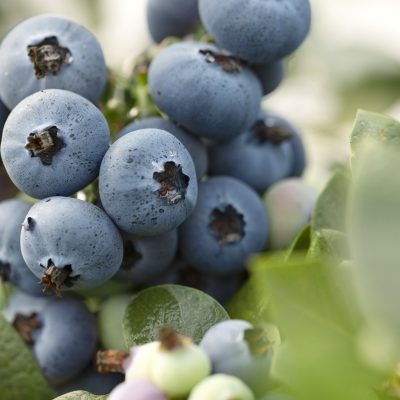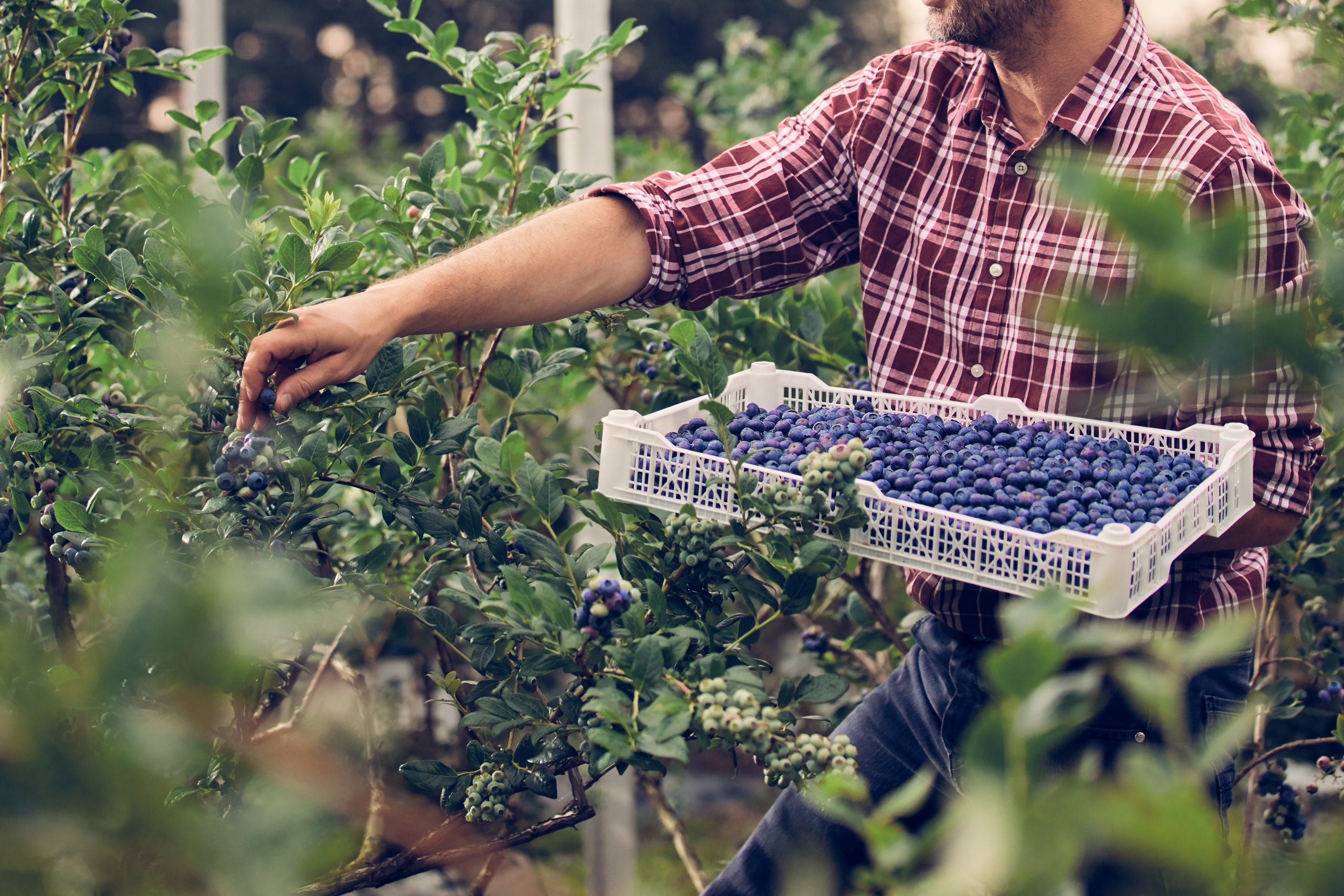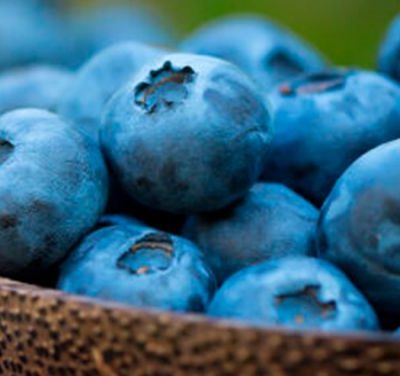Britain’s blueberry boom
The blueberry, once an exotic foreign rarity, has become Britain’s fastest-growing fruit, and not in the beanstalk sense. More British growers are raising blueberries than ever before, with commercial production up 482 per cent since 2008.
Three years ago, blueberries toppled raspberries to become Britain’s second most popular soft fruit after the strawberry. Now growers are tipping 2013 to yield the best crop yet. Early tastings suggest this summer’s berries will be sweeter and richer in flavour than ever, thanks to the recent hot weather.
Blueberries have exploded in popularity because of their rebranding as a “superfood”. Studies have suggested that they have major health benefits to the skin, nervous system and even memory, thanks to high levels of antioxidants. Though the vast majority of supermarket blueberries are still imported, mainly from Chile, Poland or France, British farmers are embracing these foreign fruits. Last year we produced 1,747 tons, up from 300 tons five years before. “Blueberry growing in the UK is a relatively new industry,” says Kate Bailey of British Summer Fruits, which represents growers. “It only really kicked off in 2008. Since then the amount of growers has risen to 20 in the UK.”
While bilberries are native to the British Isles, growing wild in heathland areas such as Exmoor, North Wales and the Wicklow mountains of Ireland, blueberries are a transatlantic import. The first arrived in 1952, thanks to a Dorset farmer with an adventurous palate. David Trehane had read an article in the Farmer’s Chronicle in which a Canadian parson, W T Suckling, was offering 80 plants free of charge to anyone in Britain. Trehane was one of only four people who replied, and on 7 March, he took delivery of his clippings. They thrived in the acid heathland around his home and, after five years, he decided to grow them commercially. In 1957, he had 1,000 plants shipped over on the Queen Mary, and his descendants still run the Dorset Blueberry Company today.
“The great thing is you don’t have to hull them; you just pop them in your mouth,” says Jeremy Trehane. “They’re beautiful raw and fantastic cooked, and freeze better than any other fruit. And there’s plenty of things you can do with them, not just muffins and cakes. A lot of people now sprinkle them on their porridge. They throw them on from frozen, like marbles; they don’t stick together and they quickly melt from the heat of the porridge.”
Laurence Olins, chairman of British Summer Fruits, says blueberries have become a popular snack food. “They’re wonderful for children, and they’re now sold in small packs and eaten at any time.” All this could be true of raspberries or blackberries. So why are we so tonto for blueberries? “The reason is they have no historic season,” he says. “Strawberries are a very British summer thing, and people are suspicious of them in winter. There’s none of that with blueberries. They grow all round the world all year, and are very trustworthy. You hardly ever get a bad one. And they travel well.”
The only trouble is the expense, though even that is changing. Ten years ago, a kilo cost about £14. Now it’s less than a tenner. So where does it leave the poor old raspberry? Though production fell slightly last year, Mr Olins says raspberries have nothing to fear. “People are buying blueberries as well as other berries,” he says. “They’re not taking away business from raspberries or strawberries.”
www.independent.co.uk




